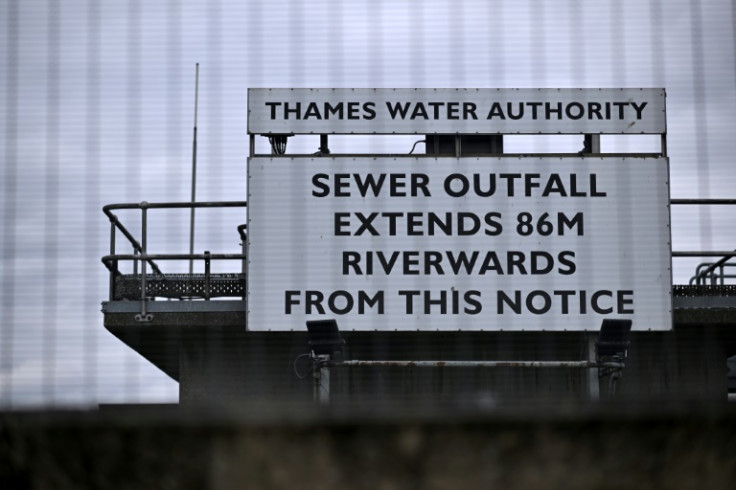UK Water Companies Will Charge Consumers Extra To Address Sewage Discharge Problem
UK water companies have put forward a new water infrastructure investment plan to the UK water regulator Ofwat, which will gradually increase the water bills over a five-year period to address the sewage discharge problem.

The sewage discharge problem by UK water companies has taken a new turn as the companies are now trying to pass on the onus to the UK consumers.
Reports suggest that UK water companies are trying to reduce the sewage discharged by increasing the water bills by £156 a year. This yearly increase in water bills is likely to happen by 2030 when UK consumers have to pay for upgrades.
According to the UK water industry, this measure is crucial for the infrastructure spending which has now doubled to reach £96 billion.
This comes at a time when people in Britain are reeling under the cost-of-living crisis and there is growing public anger against the water companies polluting the UK rivers and seas through sewage discharge.
At present, water industry regulator Ofwat is under pressure to approve the annual increase in water bills.
Experts believe that the UK water companies can bag "record-breaking" investments if Ofwat gives a green signal to the proposal. This is likely to secure the long-term future of UK water supplies.
However, experts disagree on putting the onus on UK consumers, especially in the ongoing cost-of-living crisis. They drew attention to the fact that the UK water companies couldn't invest properly, even after three decades of privatisation. Most of the water company's profits go to the shareholders, leaving little room for revenue.
Although the standards improved significantly in these 30 years, with over £200 billion invested in water infrastructure, much more needs to be done "urgently", said the UK water industry.
The UK water companies have to submit their respective investment plants for five years, starting from 2025. The 2025-2030 water Infrastructure investment plan of every company would be scrutinised by the water regulator Ofwat.
Depending on the company, the water bill will vary. However, the proposals made by the UK water companies don't speak of a steep increase in the water bills but a gradual increase of £84 every year from 2025 until it reaches £156 in 2030.
Although the proposed increase in the water bills is at the current price it will eventually lead to a higher increase in the bill due to inflation.
This comes at a time when a recent study has identified sewage discharge as the top polluter of UK rivers and seas
Meanwhile, campaigners have labelled the hike in the water bills as a "breathtakingly catastrophic strategy" for the UK water industry.
According to the campaigners, UK water companies have enough money "to develop, build and maintain a sewage system" that can probably deal with sewage discharge.
The campaigners say the UK water regulator Ofwat shouldn't make UK consumers pay for the second time for a service they never received.
The General, Municipal, Boilermakers' and Allied Trade Union (GMBATU) or simply GMN union termed the increase in water bills "an insult" as the UK water companies polluted the UK rivers with sewage. The union alleges that they paid out billions in dividends and failed to sustain investment for decades.
The new investment plan by UK Water companies to reduce sewage spills
Terming the new plan "the most ambitious modernisation of sewers since the Victorian era", Water UK said it would reduce the extent of water leaks by a quarter from the 2020 levels. They hailed the idea of increasing the water bills as it would create a new reservoir for the first time in 30 years.
Water UK highlighted the extent of the problem by stating that the UK water companies had polluted the UK rivers with sewage discharge by over 300,000 times last year. The new plan aims to reduce these sewage spills by over 140,000 every year by 2030.
Defending the UK water industry, Water UK Chief Executive David Henderson said that the industry has invested £200 billion since privatisation, which is double of the pre-privatisation era.
Henderson drew attention to the fact that the UK drinking water is at the highest standard in the world.
Henderson further elaborated how leakages in the UK water industry have gone down by a third with two-thirds less phosphorus and ammonia flowing into UK rivers.
There is a seven-fold increase in the number of excellent UK beaches, Henderson added.
He revealed how the UK water companies have kept the water bills low as seen in the average fall in water bills by a fifth since 2010. UK homes qualifying for water bill support went up from one million to three million, said Henderson.
Meanwhile, the UK water regulator Ofwat has assured that the plan will be approved after forensic scrutiny in a series of public meetings held over October and November. Opinions of the UK consumers will be heard in the process, Ofwat revealed.
Ofwat said it's looking for a step change, one that will let the UK consumers pay for future investments and not past mistakes of the UK water companies.
However, the regular underlined the urgent need for tackling the sewage discharge problem because of climate change.
Chief Executive of Ofwat David Black assured that the regulator will monitor the water companies and hold them accountable for their actions, pushing for better plans.
Welcoming the new investment plan, Environment Secretary Therese Coffey asked Ofwat to ensure that UK consumers don't pay the "price for poor performance".
Recently Ofwat asked the UK water companies to return £114 million to the UK consumers by lowering the water bills as they missed their current five-year target.
The first draft of every water company's plan will be made available to the public by May next year and the final charge will be announced by December 2024.
© Copyright IBTimes 2025. All rights reserved.






















